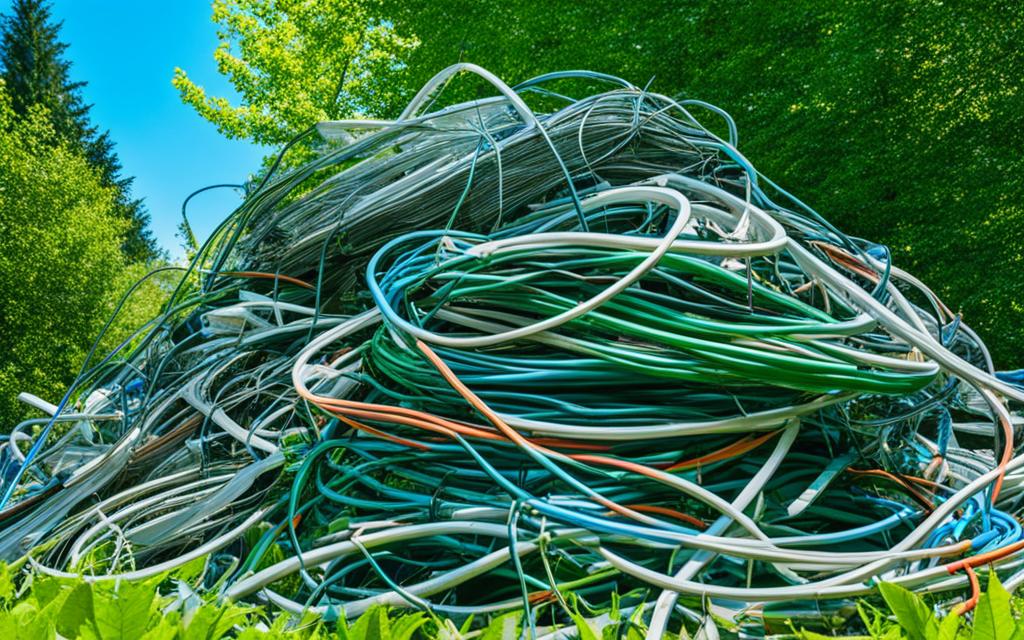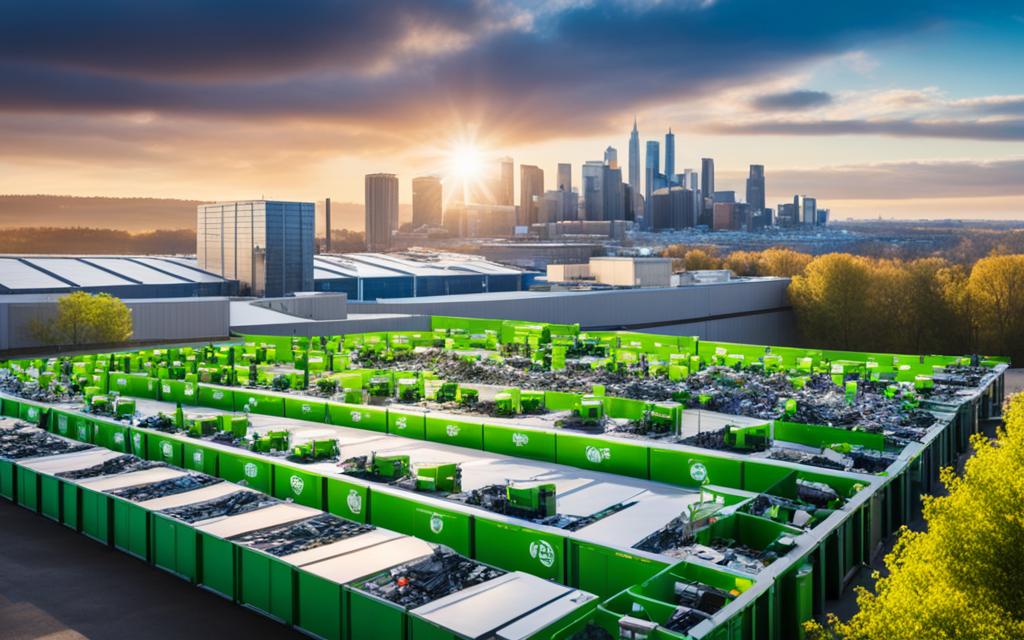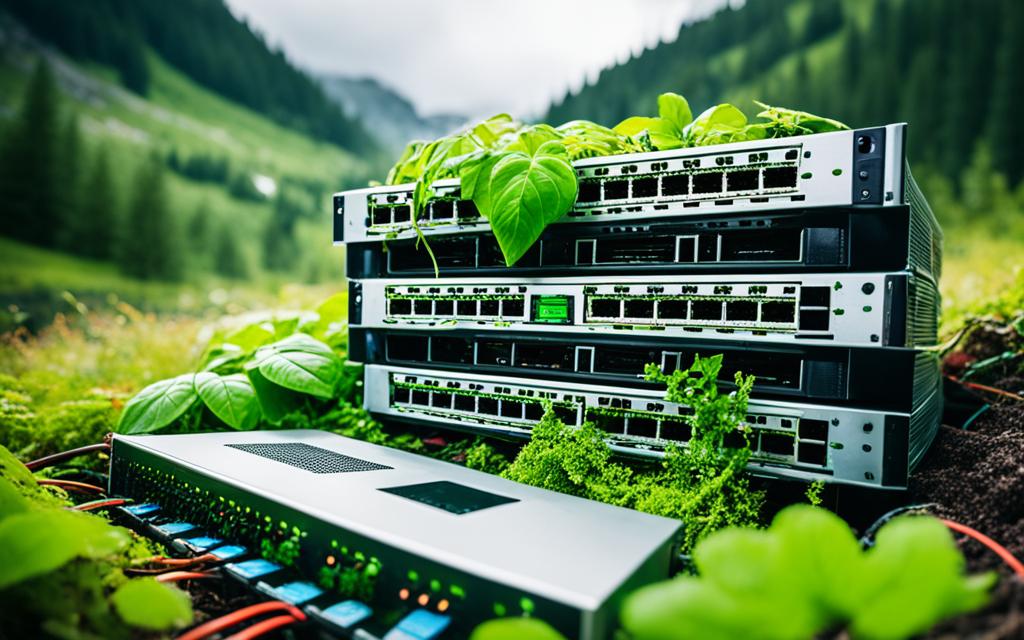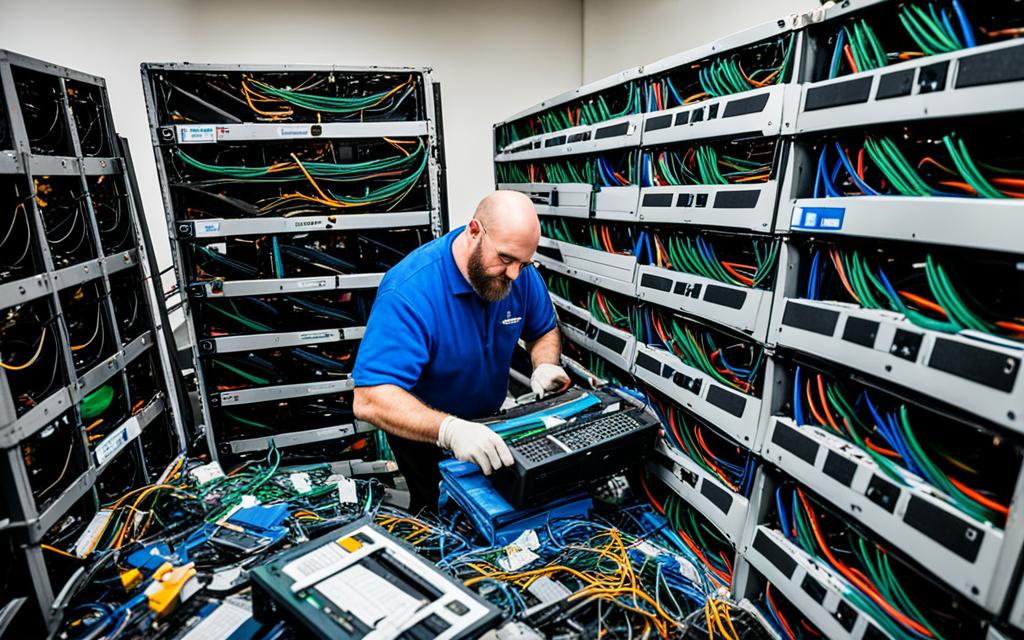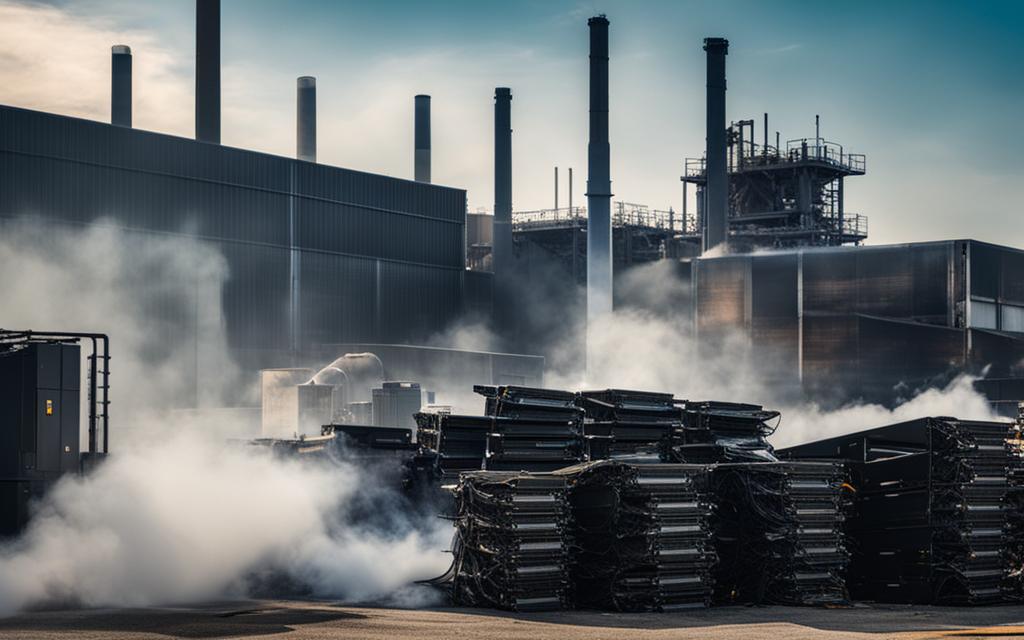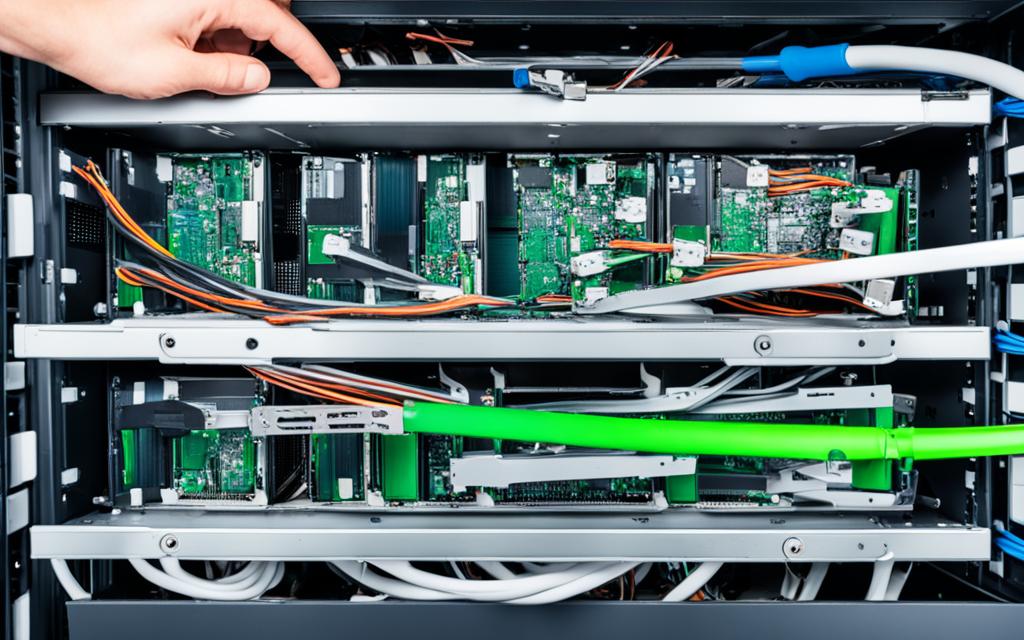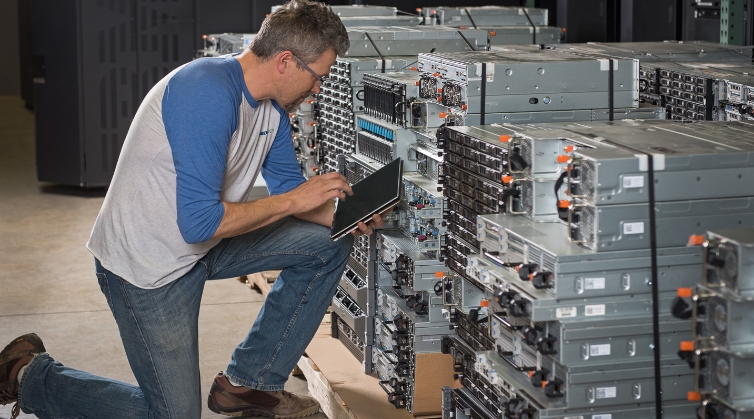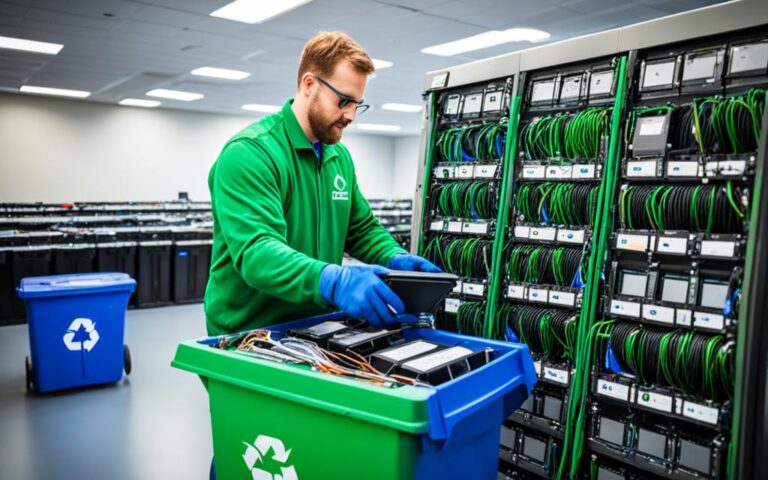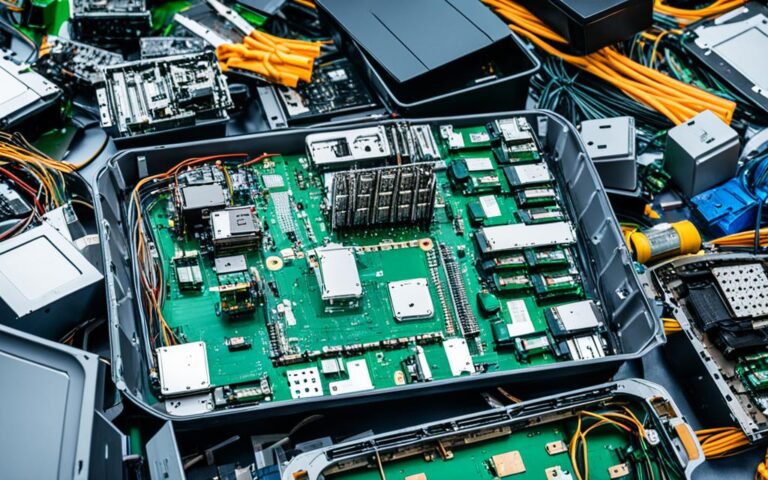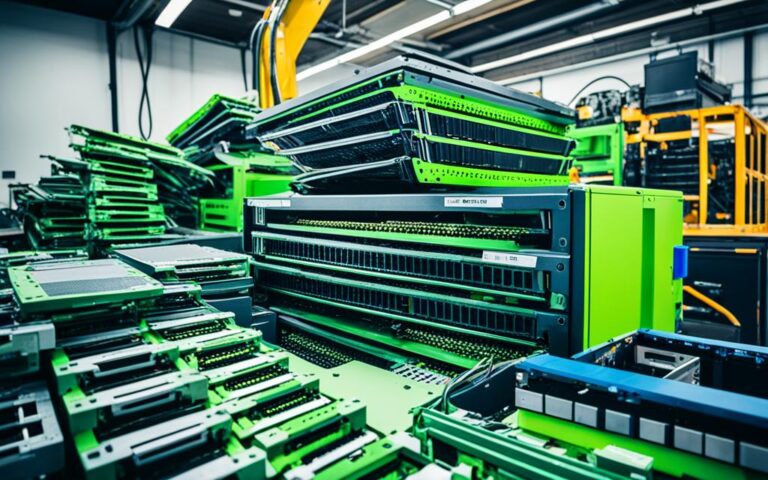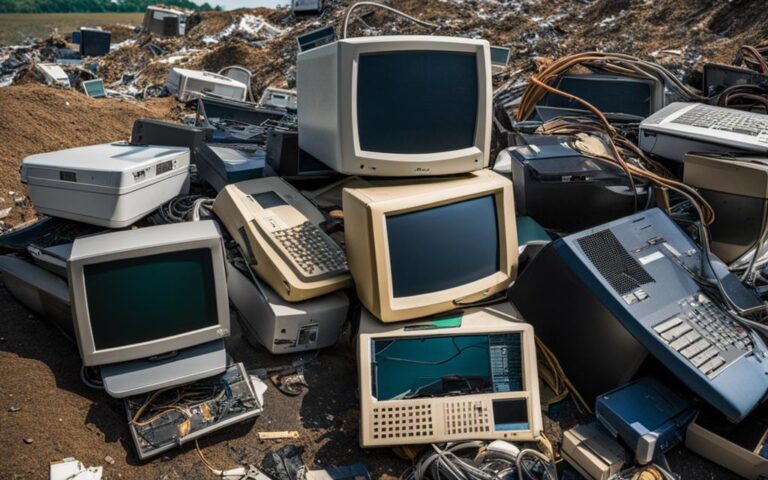Server Recycling: A Step Towards Zero Waste in IT
Did you know that over 11 billion tons of waste are generated worldwide each year? This staggering amount of waste leads to pollution, resource depletion, and environmental damage. In a world that is becoming increasingly conscious of the need for sustainable practices, it’s crucial for businesses to take action and reduce their impact on the planet.
One industry that plays a significant role in waste generation is IT. With the constant advancement of technology, the lifecycle of servers is becoming shorter, resulting in an abundance of electronic waste. However, there is a solution – server recycling.
Server recycling is an essential step towards achieving zero waste in the IT industry. It involves breaking down servers into their component parts, securely erasing data, and reusing or recycling the components in an environmentally responsible manner. By embracing server recycling, businesses can divert valuable resources from landfills and reduce the demand for raw materials.
One company leading the way in zero waste IT is Microsoft. With their goal to achieve zero waste for their direct operations, products, and packaging by 2030, they are investing in closed-loop partnerships, eliminating single-use plastics, and promoting responsible waste management practices.
But it’s not just about the environmental benefits. Server recycling also contributes to data security. Servers often store sensitive and confidential information, and responsible disposal ensures that this information is securely erased, minimizing the risk of data breaches and legal consequences.
Join the movement towards zero waste IT and make a positive impact on both the environment and your business. Explore the benefits of responsible server recycling and choose a partner like Data Network, a leading provider of IT asset management solutions, to ensure secure data erasure and environmentally sustainable practices.
The Importance of Server Recycling
Server recycling is crucial for several reasons. Firstly, improper disposal can lead to data breaches and legal consequences. Servers often contain sensitive and confidential data, and responsible disposal ensures that this information is securely erased. Secondly, server recycling has significant environmental implications. By responsibly recycling servers, valuable resources can be conserved, reducing the demand for raw materials. Additionally, recycling helps minimize electronic waste and prevents harmful chemicals from leaching into the environment. Embracing server recycling is a step towards achieving zero waste in the IT industry.
Proper disposal of servers is essential to protect sensitive data and ensure compliance with regulations. An alarming number of data breaches occur due to improper disposal practices, putting both individuals and organizations at risk. By responsibly recycling servers and securely erasing data, businesses can safeguard their information and prevent potential liabilities.
Furthermore, server recycling plays a significant role in reducing the environmental impact of IT operations. A single server contains numerous valuable materials, such as metals and plastics, which can be reused or recycled. By extracting these resources through recycling, the demand for new raw materials is reduced, leading to significant energy and resource savings. Additionally, recycling servers helps minimize electronic waste, which is a mounting concern globally. Electronic waste contains hazardous substances that can contaminate soil and water sources if not properly handled. By recycling servers, harmful chemicals are prevented from leaching into the environment, safeguarding ecosystems and human health.
A shift towards responsible server recycling is essential to achieve zero waste in the IT industry. By embracing sustainable practices and recycling servers, businesses can contribute to a more circular economy and reduce their overall environmental footprint.
Proper server recycling not only protects data security but also helps to conserve resources, reduce waste, and mitigate environmental pollution. It is a crucial step towards building a sustainable and responsible IT industry.
Implementing responsible server recycling practices is not only beneficial for businesses but also for the planet. By choosing to recycle servers instead of disposing of them in landfills, companies can play an active role in reducing electronic waste and minimizing the extraction of valuable resources.
Benefits of Server Recycling:
- Environmental conservation: Server recycling helps conserve valuable resources and reduces the demand for raw materials.
- Reduced electronic waste: Recycling servers minimizes electronic waste and prevents harmful chemicals from polluting the environment.
- Data security: Responsible disposal ensures secure data erasure, protecting sensitive information from unauthorized access.
- Cost savings: Recycling servers can generate additional revenue by reselling valuable components or metals.
- Enhanced reputation: Demonstrating commitment to responsible server recycling practices can improve a company’s reputation and position them as an industry leader.
The Basics of Server Recycle
Server recycling plays a vital role in promoting sustainability and minimizing electronic waste in the IT industry. By breaking down servers into their component parts, securely erasing data, and reusing or recycling the components, valuable materials can be recovered, reducing the demand for raw resources. It also supports the circular economy by extending the lifespan of servers and preventing hazardous materials from leaching into the environment.
Servers consist of various materials, including metals such as aluminum and copper, plastics, and hazardous substances like lead and mercury. Recognizing and understanding these materials is crucial for the recycling process, as it allows for proper sorting and recycling of each component. By effectively recycling servers, businesses and organizations can promote resource efficiency and contribute to a more sustainable future.
Here are some key benefits of server recycling:
- Promotes resource efficiency by reusing valuable materials
- Reduces electronic waste and its environmental impact
- Supports the circular economy by recovering valuable resources
By adopting server recycling practices, businesses can take a significant step towards sustainability and contribute to a greener IT industry.
“The greatest threat to our planet is the belief that someone else will save it.” – Robert Swan
The Benefits of Proper Server Recycle Practices
Proper server recycle practices offer numerous benefits. Firstly, they prolong the lifecycle of servers by efficiently utilizing the resources invested in their production. By recycling servers, businesses can maximize the value of their equipment and extend its usability, reducing the need for frequent replacements and ultimately saving costs in the long run.
Furthermore, server recycling has economic advantages. Valuable components or metals extracted from recycled servers can be resold, providing an additional revenue stream for businesses. This not only contributes to a circular economy but also helps to offset the initial investment made in the server infrastructure.
“Server recycling not only benefits the environment but also presents a significant opportunity for businesses to derive value from their old equipment.”
In addition to the economic benefits, responsible server recycling also plays a pivotal role in reducing electronic waste and minimizing its environmental impact. Old or obsolete servers contain hazardous materials that can harm the environment if not disposed of properly. By recycling servers through certified facilities, these hazardous materials can be safely extracted and managed, preventing potential contamination of soil, air, and water resources.
A crucial aspect of responsible server recycling is secure data erasure. Servers often store sensitive and confidential data, including customer information and proprietary business data. Ensuring that all data is securely erased during the recycling process eliminates the risk of data breaches and protects businesses from legal consequences. It also demonstrates a commitment to data security and compliance with regulations.
By practicing proper server recycling, businesses can gain multiple advantages. From prolonging the lifecycle of servers and generating additional revenue through component resale, to minimizing e-waste and ensuring data security, responsible server recycle practices position companies as leaders in sustainability and environmental stewardship.
Conclusion
Data Network: Your Partner for Responsible Server Recycling and IT Asset Management
When it comes to server recycling, Data Network is the trusted partner you need. As a leading provider of IT asset management solutions, we prioritize environmentally sustainable practices and secure data erasure. Our comprehensive process includes equipment assessment, secure data erasure, disassembly and sorting, resource recovery, and certified recycling.
By choosing Data Network for your server recycling needs, businesses can take a significant step towards environmental responsibility. Our commitment to sustainable practices ensures that valuable resources are conserved, reducing the demand for raw materials and minimizing electronic waste. Moreover, our secure data erasure guarantees that sensitive information remains protected and in compliance with regulations.
With the growing need for sustainable IT asset management, partnering with Data Network is a wise investment for any organization. Our expertise in server recycling and responsible IT asset management allows businesses to achieve their zero waste IT initiatives while maintaining data security and regulatory compliance. Choose Data Network as your trusted provider for server recycling and join us in building a greener, more sustainable future.
FAQ
Why is server recycling important?
Server recycling is important because improper disposal can lead to data breaches and legal consequences. Additionally, recycling servers helps conserve valuable resources, reduces electronic waste, and prevents harmful chemicals from leaching into the environment.
What does server recycling involve?
Server recycling involves breaking down servers into their component parts, securely erasing data, and reusing or recycling the components in an environmentally responsible manner. It is important to recognize the various materials in servers, such as metals, plastics, and hazardous materials, to enable proper sorting and recycling.
What are the benefits of proper server recycle practices?
Proper server recycle practices prolong the lifecycle of servers, utilize resources efficiently, and have economic advantages through reselling valuable components or metals. They also reduce electronic waste, minimize the environmental impact, ensure data protection and compliance, and enhance a company’s reputation.
Why should I choose Data Network for server recycling?
Data Network offers an environmentally sustainable server recycling service with secure data erasure, disassembly and sorting, resource recovery, and certified recycling. By partnering with Data Network, businesses can benefit from environmental responsibility, data security, and regulatory compliance in their zero waste IT initiatives.

